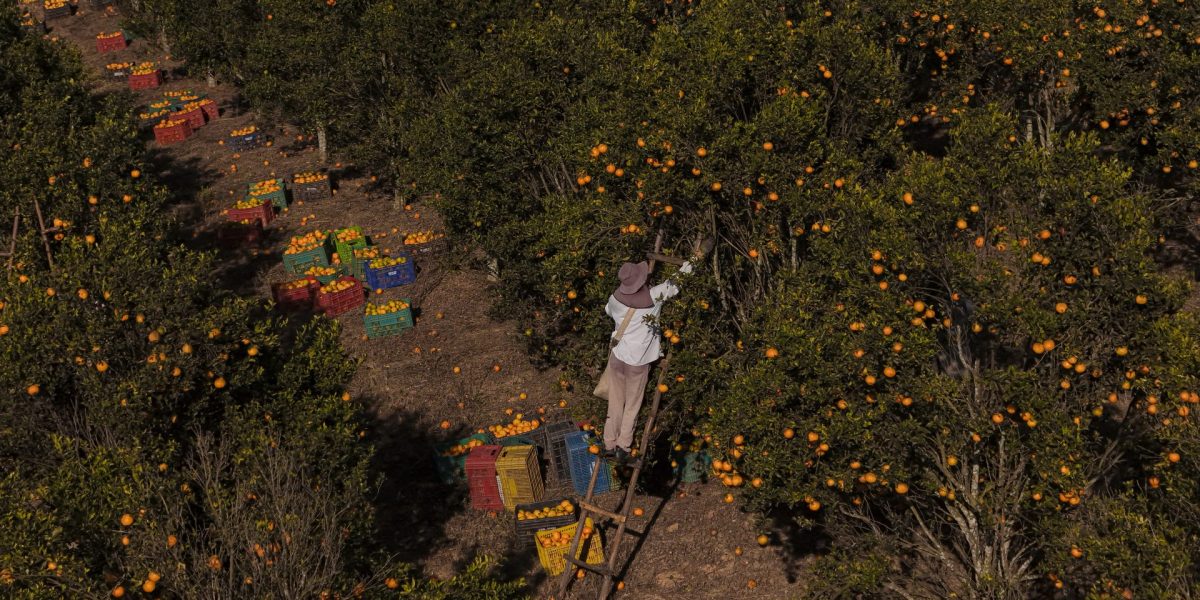Crop Insurance in the G20 agenda
Climate change is increasing the frequency at which African countries experience extreme weather events, with severe consequences for people’s livelihoods. Agriculture is one of the sectors most affected by climate change, and climate change is projected to impact especially African economies, which are heavily reliant on rain-fed agriculture while lacking safety nets to strengthen climate resilience and risk mitigation. The World Bank estimates that globally nearly one in five people (18%) are at risk from a severe weather event from which they will struggle to recover, and this proportion is more than double in Africa.1Ruth Hill et al., “One-Fifth of the World’s Population at High Risk from Climate-related Hazards”, Nature Portfolio preprint (2024).
Risk transfer instruments such as crop insurance have become an increasingly important policy issue for the G20, given their strong potential to provide a safety net and contribute to food security, economic inclusion and climate resilience. By offering financial protection against losses from floods, droughts, pests and diseases, crop insurance helps farmers manage production risks and climate shocks. Insurance can help smallholder farmers protect their livelihoods from extreme weather events, but the associated risk reduction can also improve access to credit and increase risk-averse farmers’ willingness to invest in productivity-enhancing technologies, thereby improving revenue and agricultural output. Under Brazil’s G20 presidency, inclusive insurance was identified as a critical tool for advancing Sustainable Development Goals (SDGs) 1 and 2, highlighting its role in supporting smallholder farmers, pastoralists and small and medium-sized enterprises.2Global Alliance Against Hunger and Poverty, “Policy Instruments: Inclusive Insurance”, accessed August 12, 2025, https://globalallianceagainsthungerandpoverty.org/policy-instruments/inclusive-insurance/ South Africa’s G20 presidency, guided by its theme ‘Solidarity, Equality, Sustainability’, explicitly calls for improved risk transfer solutions in its Environment and Climate Sustainability Working Group (ECSWG) and Disaster Risk Reduction Working Group (DRRWG).3Environment and Climate Sustainability Working Group, “December 2024 Issue Note” (G20 South Africa, 2024); Disaster Risk Reduction Working Group, “December 2024 Issue Note” (G20 South Africa, 2024). At the same time, the Agriculture Working Group has endorsed solutions to build climate resilience as a key priority and sustainable food systems have been prioritised through the establishment of a Task Force on Food Security.4Agricultural Working Group, “December 2024 Issue Note” (G20 South Africa, 2024).
Under South Africa’s G20 presidency, one of the priorities for the ECSWG is climate change adaptation through both local-level adaptation measures (eg, the cultivation of drought-resistant crops, regenerative agriculture, water management and infrastructure to withstand extreme weather events) and national and international measures (eg, early warning systems, insurance for climate risks and protections for ecosystems). The DRRWG envisions accelerating implementation of the Sendai Framework, including its priority area related to addressing inequalities and reducing vulnerabilities. This working group aims to advance a compendium of risk transfer solutions targeting vulnerable populations, such as microinsurance, given that these instruments are often not accessible or affordable for the most vulnerable people.
The Agriculture Working Group recognises that building climate resilience for sustainable agricultural production requires climate financing mechanisms that enable farmers to improve agricultural productivity and reduce food insecurity. This working group aims to identify enablers that can improve the resilience of agriculture in a changing climate and to establish national climate financing mechanisms specific to the agricultural sector to reach small farmers and vulnerable populations. It also aims to develop climate-resilient policies, approaches and inclusive strategies that put climate actions at the heart of all agricultural activities. Crop insurance is one of the solutions that may contribute to these aims and help operationalise resilience.








